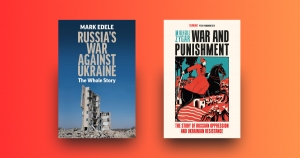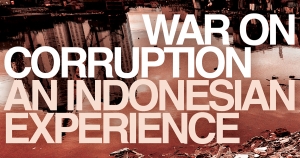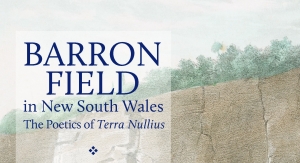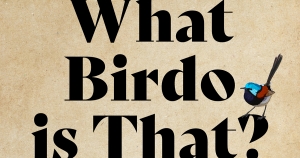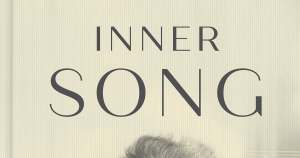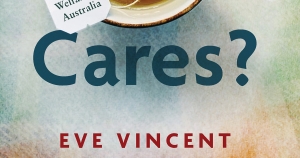Melbourne University Press
The political scientist Karl Deutsch once said that a nation is a group of people united by a mistaken view about the past. These two new accounts of the history of relations between Russia and Ukraine, and the nationalist distortions of that history, would seem to bear him out. Vladimir Putin’s historical arguments for the war against Ukraine are widely accepted by his fellow countrymen and women, prompting the Russian journalist Mikhail Zygar to argue, in War and Punishment, that this ‘imperialist’ history is ‘inherently addictive’ and ‘our disease’. But this is not a vice unique to Russians: the Australian historian Mark Edele points out, in Russia’s War Against Ukraine, that Ukrainian governments have also indulged in a ‘clumsy politics of memory’ by celebrating anti-Semitic, anti-Polish, and anti-Russian nationalists.
... (read more)Howard Dick reviews 'War on Corruption: An Indonesian experience' by Todung Mulya Lubis
If the Australian government had banned books about Indonesia, it could hardly have been more successful in removing them from bookshops and library shelves than is presently the case. Even when such books appear in catalogues, retailers seem convinced that the public is not interested.
... (read more)Philip Mead reviews 'Barron Field in New South Wales: The poetics of Terra Nullius' by Thomas H. Ford and Justin Clemens
Literary study tends to be characterised by bipolar episodes, swinging between enjoyment and judgement. There is reading for pleasure and learning to be critical, or making up your mind about how good, bad, or indifferent a literary work is. This way of thinking about literature still pervades all levels of the cultural and social scenes where readers talk to one another. We discuss with our friends or communities whether we like a work of literature or not, but when things get formal or seminar-serious the conversation shifts to whether we think that work is any good – a different thing. The Saturday review pages wobble between these two modes, between chat about whether readers will like a book or film, and whether it’s any good or not. Some texts that have become good over time, canonical in other words, we might not like. ‘Like’, here, of course, is a very fuzzy notion, although you would have to be delusional to think a book is automatically good because you like it. And liking certain texts, Ern Malley’s poetry or Stephenie Meyer’s fiction for example, might be evidence, in some people’s view, of a lack of taste, or bad judgement. But as we say, there’s no accounting for that.
... (read more)Peter Menkhorst reviews 'What Birdo Is That? A field guide to bird people' by Libby Robin
Eminent ecological historian Libby Robin has produced a curious book that examines the changing interests and roles played by those Australians who ‘notice birds and feel they need our help’. She aims to examine the rise of the nature conservation movement in Australia, using ‘Australia’s bird-people’ as a sample of Australians with a love of nature.
... (read more)Jillian Graham begins her biography of Margaret Sutherland (1897–1984) with a story that vividly captures two themes that recur throughout the book: Sutherland’s activism, and her sometime exclusion from Australia’s institutional musical life as it developed through her lifetime.
... (read more)Shannon Burns reviews 'Who Cares? Life on welfare in Australia' by Eve Vincent
According to its author, Who Cares? offers ‘an up-close, humane and grounded ethnographic account of life on welfare’. Eve Vincent foregrounds the perspectives of people who are subjected to ‘an endlessly reforming welfare system’. Vincent spent substantial time in the field, building relationships with her subjects, and while the history of welfare in Australia is neatly sketched and the social and political theories underpinning the study are worthy of interest, the voices of her subjects – those who live in poverty while being subjected to strict (and sometimes nonsensical) conditions – are the book’s most vital and captivating features.
... (read more)Johanna Leggatt reviews 'Cannon Fire: A life in print' by Michael Cannon
Journalist, editor, and publisher, Michael Cannon rose to prominence in print during its golden age of boundless advertising dollars, when those ‘rivers of gold’ paid for high salaries, fully staffed beats, and morning and evening newspaper editions. This was not a world of shrinking pages and newsroom cuts, of ‘digital-first’ mantras, click bait and Murdoch domination – not yet. But newspapers were not necessarily more sophisticated places either, which makes Cannon’s memoir as much a rejoinder to the lionising of lost newspaper culture – a challenge to the notion that things were always better back then – as the story of a remarkable career.
... (read more)Kevin Foster on Australia in the international arena
Unlike in the United States and several other Western nations, Australian governments are under no compulsion to consult parliament before sending troops to war. In Subimperial Power: Australian in the international arena, Clinton Fernandes argues that this reflects, and furthers, Australia’s longstanding ambition in foreign affairs, which is to demonstrate its usefulness to the United States. In this week’s ABR Podcast, Kevin Foster, an academic at Monash University who has published widely on war in the Australian media, reviews Subimperial Power.
... (read more)Christina Twomey reviews 'The Work of History: Writing for Stuart Macintyre' edited by Peter Beilharz and Sian Supski
History was work for Stuart Macintyre (1947–2021), writing was his pleasure, and he excelled at both. Peter Beilharz and Sian Supski, scholars from outside Macintyre’s own discipline of history, underscore the breadth of his interests and networks by initiating this collection of twenty-seven essays. They wish to honour Macintyre’s work and interrogate ‘the Macintyre effect’. That effect stemmed from prodigious scholarly output, intervention in national debates, political connections, service to professional bodies and key cultural institutions, a long career of teaching and leadership at the University of Melbourne, and mentorship.
... (read more)Geoffrey Williams reviews 'Diplomatic Witness: Australian foreign affairs 1941-1947' by Paul Hasluck
Sir Paul Hasluck has written a most interesting account of Australia’s foreign policy during the war and the period 1945 to 1947. His impressionistic narrative which seeks to illuminate a period of history through one pair of eyes, as a central witness, giving evidence of how it was, works quite well despite the difficulties and unintentional distortions of the historical record that such an approach can often involve. I suspect that in the fullness of time his account of this period will be substantially upheld by future professional historians.
... (read more)
